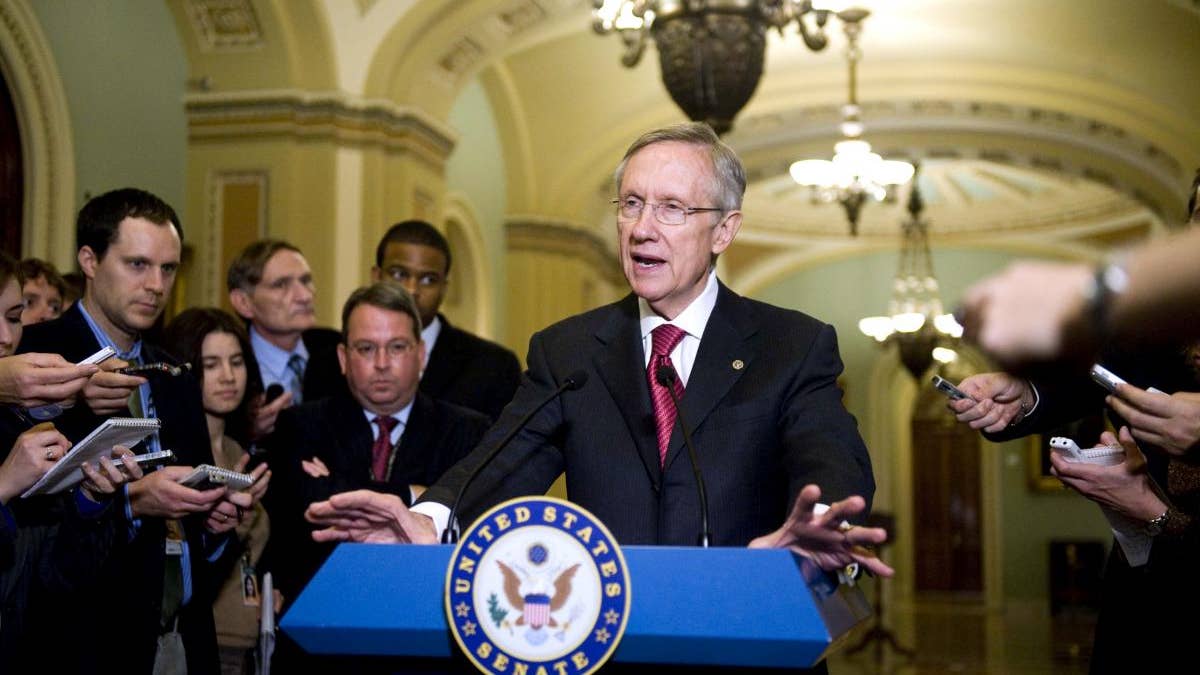
AP Photo
Senate Majority Leader Harry Reid, D-Nev., announced Thursday that Democrats will move forward with a vote to extend only the tax cuts for those Americans making $250,000 or less, a strategy set after a morning meeting of Congressional Democratic leaders with President Obama.
"We're united in recognizing that we have to protect the middle class," Reid told reporters after huddling with his caucus for hours behind closed doors, but it is clear in talking with Democrats exiting the session that that is the only thing on which they are united.
The leader has asked that members return on Friday to continue their discussion, one described as "town hall-like" by several senators, with members voicing their own preferences.
"I would say there is not a consensus. There were a lot of good thoughts," Sen. Joe Lieberman, D-CT, told reporters. "There were a lot of different options discussed."
Reid also said, when they return from the Thanksgiving break, likely starting the week of December 6, that besides the middle class-only approach, senators will also vote on a plan put forward by Senate GOP Leader Mitch McConnell, R-Ky., to extend all of the Bush-era tax cuts permanently.
But it is a strategy set for failure and laced with political undertones, as numerous members and aides on both sides of the aisle confirm that neither bill has the votes needed to overcome a filibuster.
"Neither one of those has 60 votes. There are at least seven Democrats who have announced opposition to Reid's bill. The only thing bipartisan about that bill is the opposition," said Don Stewart, spokesman for Sen. Mitch McConnell, R-Ky.
Reid indicated that there would be multiple votes around the tax cuts issue, and aides, afterward, did not rule out a temporary extension of all of the rates, an approach that seems to enjoy bipartisan support.
Either way, Reid spokesman Jim Manley said Thursday that the issue should be resolved before the next session of Congress.




















